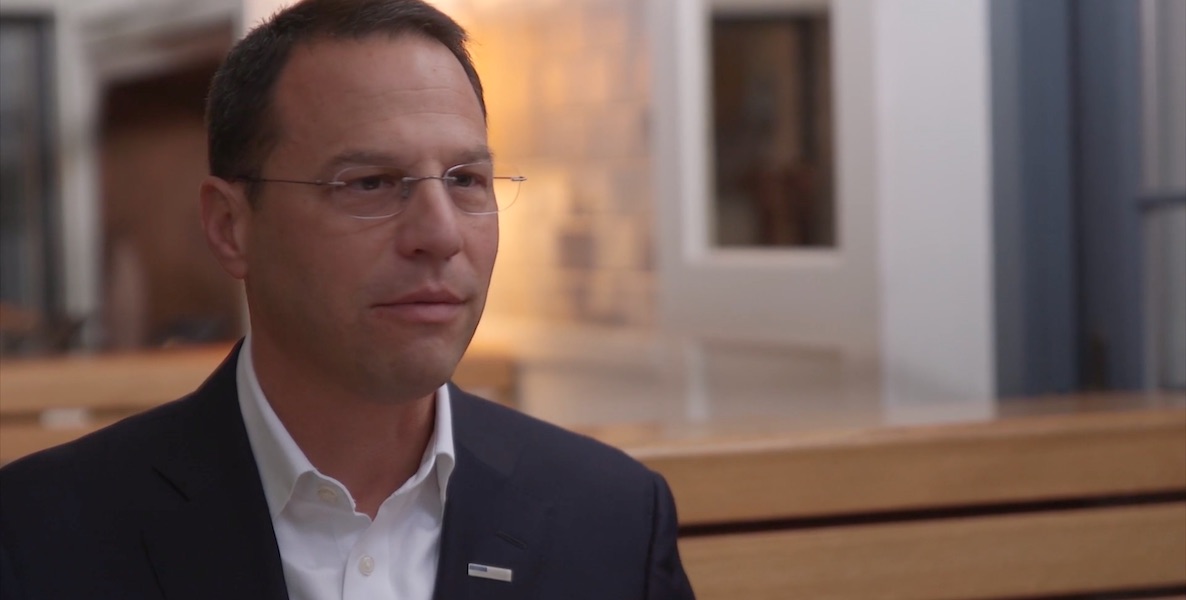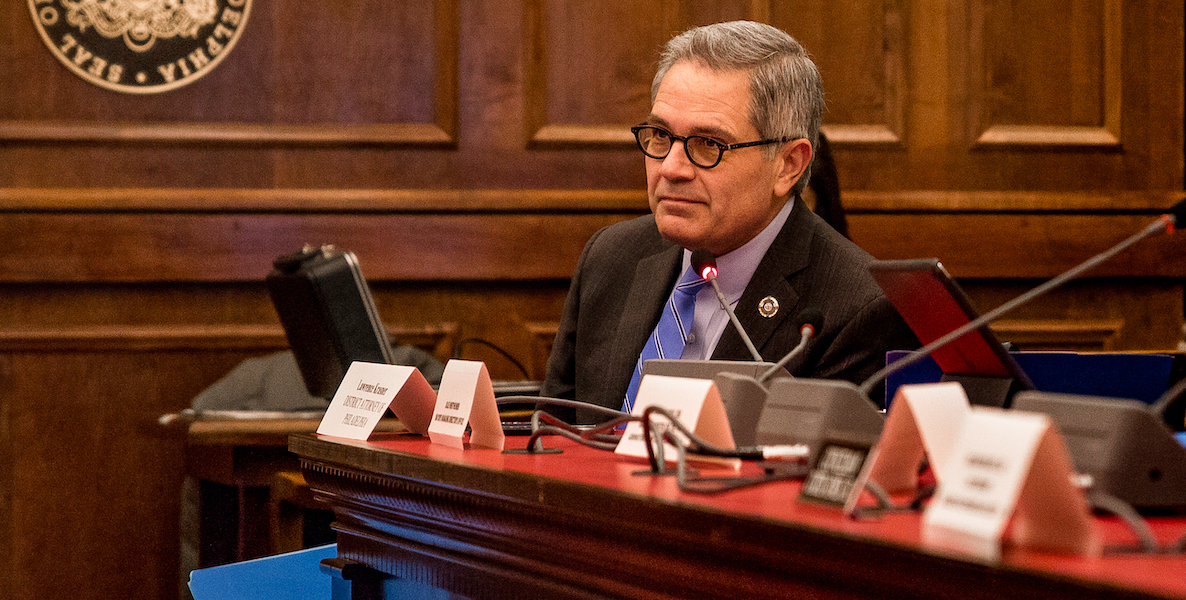Okay, so legal briefs rarely qualify as page-turners. They’re usually dry, jargon-laden, and tend to advance arcane theory. Beach reading they ain’t.
![]() But every once in a while, a piece of legal writing or speech will transcend those narrow confines, and strike at a rousing universal truth. You read it or hear it and think, the country needs to hear this, and, sooner or later— sometimes much later—that very communication breaks through the noise.
But every once in a while, a piece of legal writing or speech will transcend those narrow confines, and strike at a rousing universal truth. You read it or hear it and think, the country needs to hear this, and, sooner or later— sometimes much later—that very communication breaks through the noise.
Think of Ruth Bader Ginsburg’s “I ask no favor for my sex. All I ask of our brethren is that they take their feet off our necks,” during her Supreme Court oral argument in the 1973 case of Frontiero v. Richardson (which contested a U.S. Air Force policy of providing benefits to dependent spouses differently based on sex). Or the close of Thurgood Marshall’s rebuttal in Brown v. Board of Education: “The only way that this court can decide this case in opposition to our position is to find that for some reason, Negroes are inferior to all other human beings.”
In these cases and others, old-fashioned moral clarity carried the day. Now, I’m not saying that Attorney General Josh Shapiro is the next Ginsburg or Marshall, but if you have a few moments, you should read the AG’s Supreme Court brief in the recent State of Texas v. Commonwealth of Pennsylvania, State of Georgia, State of Michigan and State of Wisconsin case. When the Court ruled unanimously against Texas’s attempt to overturn the election results in four states, it exposed the vileness of Donald Trump’s post-election Big Lie strategy.
For proof, just read Shapiro’s brief, which offers the type of plain-spoken moral clarity that is often lacking in the fog of war that passes for public discourse in Trump’s America.
![]() “What Texas is doing in this proceeding is to ask this Court to reconsider a mass of baseless claims about problems with the election that have already been considered, and rejected, by this Court and other courts,” Shapiro writes. “…Texas has not suffered harm simply because it dislikes the result of the election, and nothing in the text, history, or structure of the Constitution supports Texas’s view that it can dictate the manner in which four other states run their elections. Nor is that view grounded in any precedent from this Court. Texas does not seek to have the Court interpret the Constitution, so much as disregard it.”
“What Texas is doing in this proceeding is to ask this Court to reconsider a mass of baseless claims about problems with the election that have already been considered, and rejected, by this Court and other courts,” Shapiro writes. “…Texas has not suffered harm simply because it dislikes the result of the election, and nothing in the text, history, or structure of the Constitution supports Texas’s view that it can dictate the manner in which four other states run their elections. Nor is that view grounded in any precedent from this Court. Texas does not seek to have the Court interpret the Constitution, so much as disregard it.”
Shapiro closes out the Brief’s Preliminary Report with a mic-drop accusation that the rest of the Brief bears out: “The Court should not abide this seditious abuse of the judicial process, and should send a clear and unmistakable signal that such abuse must never be replicated.”
I reached out to Shapiro to discuss the Brief and the surreal six weeks or so since Donald Trump’s loss at the polls and in the Electoral College. What follows is an edited and condensed transcript of our conversation.

Larry Platt: I’ve been waiting for someone to step up to the modern-day role of attorney Joseph Welch in the Army-McCarthy hearings, when a common sense appeal to shared values toppled a previous era’s demagogue: “Have you no sense of decency, sir? At long last, have you left no sense of decency?”
Reading your Brief, you kind of do that. You methodically expose the argument of election fraud as a fraud in and of itself, but you do so in an everyday tone that felt morally righteous. Tell me about how you approached this legal assignment?
Shapiro closes out the Brief’s Preliminary Report with a mic-drop accusation that the rest of the Brief bears out: “The Court should not abide this seditious abuse of the judicial process, and should send a clear and unmistakable signal that such abuse must never be replicated.”
Josh Shapiro: First off, you’ve heard me say it before, I’m privileged to work with an outstanding group of colleagues, and we hold multiple conversations every day about defending democracy. For the Brief, the plan was to speak in plain terms for the Justices and also for the people of Pennsylvania and the United States of America, because it was their voices that were at risk of being tossed out.
![]() I went back and forth on it a lot in my head, how to describe what Donald Trump and his enablers were trying to do here. I truly reached the conclusion that this was an act of sedition. If you were to challenge me on that, just approach it logically. Let’s assume the Texas Attorney General was successful—that he had facts and evidence on his side, which we all know he didn’t. That would mean that for every election going forward, a state could overturn the results by going to the Supreme Court if it didn’t like who had won. Once you get there, we no longer have a representative democracy. That’s a seditious act, and I thought it was important to call that out.
I went back and forth on it a lot in my head, how to describe what Donald Trump and his enablers were trying to do here. I truly reached the conclusion that this was an act of sedition. If you were to challenge me on that, just approach it logically. Let’s assume the Texas Attorney General was successful—that he had facts and evidence on his side, which we all know he didn’t. That would mean that for every election going forward, a state could overturn the results by going to the Supreme Court if it didn’t like who had won. Once you get there, we no longer have a representative democracy. That’s a seditious act, and I thought it was important to call that out.
The line that, to me, was just as important as the idea of sedition was what we say right after that, that the Court “should send a clear and unmistakable signal that such abuse must never be replicated.”
LP: Well, that’s right, and I fear that the Court’s ultimate ruling left open, in the public imagination anyway, that this wasn’t a type of coup attempt.
JS: Let me push back on that. They did, I think, make that clear by ruling so quickly that “Texas’s motion for leave to file a bill of complaint is denied for lack of standing under Article III of the Constitution. Texas has not demonstrated a judicially cognizable interest in the manner in which another State conducts its elections.”
LP: Right, I see your point, that it very clearly states this was an unconstitutional overreach. I guess I was hoping they’d use your plain language and call it an act of sedition, or some such.
JS: The fewer words the better. What was important here was that the Court very quickly and clearly ruled. By the way, Trump and his enablers have called this a 7-2 decision. It wasn’t. Alito and Thomas said they’d hear the case, but both specifically said they would not grant relief. So it was unanimous.
I went back and forth on it a lot in my head, how to describe what Donald Trump and his enablers were trying to do here. I truly reached the conclusion that this was an act of sedition.
LP: The other part of your brief that jumped out at me was the way you pick up this Ph.D witness Texas cites, turn him upside down, and mop the floor with him. This is the guy who claims that the “probability of former Vice President Biden winning the popular vote in the four Defendant States independently given President Trump’s early lead in those States as of 3 a.m. on November 4, 2020, is less than one in a quadrillion.”
JS: [Laughs] Larry, the other side had no facts or evidence, just debunked conspiracy theories and phony experts like the guy you’re talking about.
LP: Here’s what you say about the testimony of that witness:
Texas also relies on a statistical analysis prepared by Charles J. Cicchetti, Ph.D., in support of the assertion that the results in the four defendant states were so improbable as to be evidence of misconduct. Texas’s allegations and Dr. Cicchetti’s analysis are nonsense…[Texas] bases this astounding assertion on Dr. Cicchetti’s assessment, for each of the states, of the extremely low probability that the votes counted before 3 a.m. and those counted afterwards were “randomly drawn from the same population.” But the votes counted later were indisputably not “randomly drawn” from the same population of votes, as those counted earlier were predominantly in-person votes while those counted later were predominantly mail-in votes. And Texas’s own complaint shows why the later-counted votes led to such a strong shift in favor of President-Elect Biden: “Significantly, in Defendant States, Democrat [sic] voters voted by mail at two to three times the rate of Republicans.” Both this fact and the expectation that it would result in a shift in President- Elect Biden’s favor as mail-in votes were counted were widely reported months ahead of the election. Texas further claims, again based on Dr. Cicchetti’s analysis, that “[t]he same less than one in a quadrillion statistical improbability” can be found “when Mr. Biden’s performance in each of those Defendant States is compared to former Secretary of State Hilary Clinton’s performance in the 2016 general election.” For this assertion, Dr. Cicchetti simply assumes that the likelihood of a given Pennsylvania voter in 2020 voting for Biden was the same as that of a Pennsylvania voter in 2016 voting for Hillary Clinton—and then concludes, based on that assumption, that the 2020 results were quite improbable. But it should not be necessary to point out that the 2016 and 2020 elections were, in fact, separate events, and any analysis based on the assumption that voters in a particular state would behave the same way in two successive presidential elections is worthless.
I don’t really have a question here, just a comment: Game over.
JS: There were no facts to back up any of the ridiculous claims Texas made. That’s why state courts, including Democrat and Republican judges, and federal courts, appointed by Democrats and Republicans, either dismissed virtually all the claims by Trump and his enablers or ruled against them, across the country.
LP: So, should we be breathing a sigh of relief and feel encouraged that our democracy has seemed to withstand this stress test?
JS: [Pauses] You know, candidly, yes and no. Yes, the Courts held, and we should celebrate that as Americans. But no in the sense that more than 120 Republican members of Congress and 18 Attorneys General and a bunch of members of Congress from Pennsylvania sought to overturn the results of an election. They cared more about not being the subject of an angry tweet by a petulant president than about honoring their oath. Think about this. These idiots from the Pennsylvania delegation wanted to overturn their own election.
More than 120 Republican members of Congress and 18 Attorneys General and a bunch of members of Congress from Pennsylvania cared more about not being the subject of an angry tweet by a petulant president than about honoring their oath. Think about this. These idiots from the Pennsylvania delegation wanted to overturn their own election.
LP: Looking forward, what do we need to think about in terms of autocrat-proofing our democracy?
JS: I used to be in favor of Electoral College reform, but now I think it needs to be abolished. The balance struck by our Founding Fathers in creating it was predicated on men—and they were all men—acting honorably. We can no longer trust all of our elected leaders to act honorably and put the country first. If Kevin McCarthy were the Speaker? He’d have moved a vote on an objection in the Electoral College and been willing to appoint Donald Trump as president, and Mitch McConnell would have gone along with it. I’m not sure they would have thought twice.
LP: Hmmm. I haven’t gotten there on the Electoral College, because I think abolishing it would just further division by empowering the two coasts and relegating most of the country into even more of a flyover territory.
![]() JS: Well, that’s a reasonable argument, but that’s a political judgment you’re making. We’ve now seen how far to the brink a corrupt president will push people and try and bend entire institutions to his will. We’ve got to return power to the people. And the Electoral College is a vestige of a society where not all people, particularly Blacks and women, were permitted to participate.
JS: Well, that’s a reasonable argument, but that’s a political judgment you’re making. We’ve now seen how far to the brink a corrupt president will push people and try and bend entire institutions to his will. We’ve got to return power to the people. And the Electoral College is a vestige of a society where not all people, particularly Blacks and women, were permitted to participate.
LP: You’re a bipartisan AG who has worked with many Republican AGs. Did this attack on Pennsylvania sovereignty come out of the blue, and how has that affected you?
JS: You’re right, I pride myself on working across the aisle and I work with these folks all the time. I’ve led a national opioid initiative with Texas AG Ken Paxton. Hours before the Supreme Court ruling, I was part of a 49-state lawsuit versus Facebook.
This was personally shocking to me, but my personal feelings don’t matter. I did take this personally on behalf of 8 million Pennsylvanians, whose voices they were seeking to silence.
We’ve got to return power to the people. And the Electoral College is a vestige of a society where not all people, particularly Blacks and women, were permitted to participate.
LP: When you learned of the Texas suit, did you pick up the phone and ask other AGs, like, “what the hell?”
JS: Oh, hell, yeah, I spoke to several AGs. I’m not going to say who I spoke to specifically, but all told me they were feeling significant pressure. I just told them that giving in to that pressure just shows the weakness of your character. And I told them to never lecture me again on things like rule of law or states’ rights, because it turns out they’re full of bullshit when they do.
But I also spoke to the Republican AGs who stood up to Trump’s pressure and didn’t go along with this attack on democracy. I have nothing but praise for Georgia’s Chris Carr, a proud partisan Republican, just like Ohio’s Dave Yost and Idaho’s Lawrence Wasden.
LP: Finally, you’ve spent much of the last four years protecting individual rights and suing the Trump administration, and the record that you’ve posted is league-leading. Just how many cases have you won?
JS: Quote me on this: A quadrillion.
Header photo by Governor Tom Wolf / Flickr








